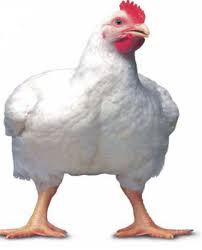Poor Performance In Poultry – How To Make Your Birds Grow Very Fast
Often, most farmers suffer from poor poultry performance or (poor meat yield or egg production).
While this is a common experience by poultry farmers, there are a lot of attributed causes to this challenge.
Poor performance in poultry production is attributed to various factors. Here are some common reasons:
Disease Outbreaks
Diseases like Newcastle, infectious bronchitis, coccidiosis, and avian influenza can significantly impact poultry performance. Proper biosecurity measures and vaccination protocols are essential to prevent disease outbreaks.
Poor Nutrition
Imbalanced or poor nutrition can lead to poor performance, low egg production, and compromised immune function in poultry. Provide the birds with a balanced diet with appropriate protein, vitamins, minerals, and energy levels.
Environmental Stress
Extreme temperatures, poor ventilation, overcrowding, and inadequate lighting can stress poultry, leading to reduced performance. Providing a comfortable and well-ventilated environment is crucial for optimal production.
Water Quality
Poor water quality can adversely affect poultry health and performance. Make sure the water sources are clean and free from contaminants.
Management Practices
Inefficient management practices such as improper handling, inadequate flock supervision, and inconsistent feeding schedules can impact poultry performance. Regular monitoring of the birds performance and proper management practices are essential.
Genetic Factors
Genetic selection plays a significant role in poultry performance. Poorly selected breeds or strains may exhibit lower productivity. Choosing high-quality breeds suited to your production goals can improve overall performance.
Parasitic Infestations
Internal and external parasites like worms, mites, and lice can cause stress and reduce feed efficiency in poultry. Implementing parasite control measures is crucial for maintaining optimal performance.
Inadequate Biosecurity
Poor biosecurity practices can lead to the introduction and spread of diseases within the flock. Farmers should implement strict biosecurity measures to prevent the entry of pathogens into the poultry farm.
Water and Feed Quality
Contaminated feed or water can lead to poor performance and health issues in poultry. Regular feed and water quality testing is essential to ensure they meet the required standards.
Breeding and Reproduction Issues
Poor breeding practices or reproductive problems can lead to decreased hatchability and chick quality, ultimately affecting overall poultry performance.
While these, among others, are some identifiable causes of poor performance in poultry, understanding how to manage these situations provides the perfect solution for fast growth and high egg yield.
How To Make Your Birds Grow Very Fast
Increasing the growth rate of birds involves various factors, including genetics, nutrition, environment, and management practices, as highlighted in the causes of poor performance above. To help your birds grow faster, here are some strategies to employ:
Select the Right Genetics
Choose breeds or strains known for fast growth rates and high feed conversion efficiency. Selecting birds with superior genetic potential for growth can significantly contribute to more rapid growth rates.
Optimize Nutrition
Provide a well-balanced diet that meets the appropriate nutritional requirements of the birds at each stage of development. Ensure the feed is formulated with the suitable protein, energy, vitamins, and minerals balance. Under veterinary guidance, consider using feed additives such as growth promoters or probiotics to enhance growth performance.
Feed Management
Implement proper feeding techniques such as providing adequate access to feed throughout the day, ensuring feed is fresh and free from contaminants, and using feeders to minimize waste. Monitor feed intake regularly and adjust feeding practices as needed to optimize growth.
Environmental Management
To minimize stress and promote growth, maintain optimal environmental conditions, including temperature, humidity, ventilation, and lighting. Provide a comfortable and clean living environment that allows birds to express their natural behaviors without hindrance.
Health Management
Implement a comprehensive health management program, including vaccination, disease prevention, and parasite control, to minimize health issues that can slow growth. Regularly monitor the flock’s health status and promptly address any signs of illness or disease.
Stocking Density
Avoid overcrowding by maintaining appropriate stocking densities in the poultry house. Overcrowding can increase stress levels and hinder growth performance.
Regular Monitoring and Management
Monitor growth performance regularly by tracking parameters such as average daily weight gain, mortality rates and feed conversion ratio (FCR). Use this information to adjust management practices and optimize growth potential.
Minimize Stress
Minimize stressors such as sudden environmental changes, handling, transportation, or social disruption. Stress can negatively impact growth and overall performance.
Water Management
Provide access to clean and fresh water at all times. Proper hydration is essential for optimal development, growth and overall health.
Consult Experts
Seek advice from poultry nutritionists, veterinarians, or agricultural extension professionals who can provide tailored recommendations based on your specific production system and goals.
Identifying and addressing these factors through proper management, nutrition, disease control, and environmental control measures can help improve poultry performance and productivity. Regular growth monitoring and adjustments based on the specific needs of the flock are also essential for maintaining optimal performance over time.
By implementing these strategies and maintaining a holistic approach to poultry management, you can help optimize growth rates and achieve faster growth in your birds.

